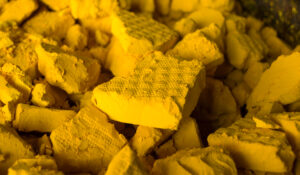Tokenization—turning assets like gold, oil, and uranium streams into digital tokens that can be traded, fractioned, and settled in real time— is unlocking liquidity and access for investors.
Every few decades, finance reinvents itself. The 1980s gave us index funds. The 2000s brought ETFs. In the last decade, crypto has reshaped the way we think about currencies and payments. The next wave is already forming: The tokenization of real-world assets (RWAs), and nowhere will this be more disruptive than incommodities. Directors, executives and corporate finance departments inside of mining companies need to turn their attention to these developments.
I’ve spent my career in the resource sector—from royalty and streaming companies to investing across critical minerals, uranium, and carbon. Over the last five years, I’ve watched blockchain evolve from a fringe technology into a financial infrastructure that some of the world’s biggest institutions are quietly adopting. The same rails that allow investors to own fractionalized shares of real estate or fine art are now being applied to barrels of oil, ounces of gold, and royalties from uranium mines.
This isn’t theory. It’s already happening. And it’s going to change how capital flows into commodities.
WHY TOKENIZATION MATTERS NOW
Tokenization simply means representing ownership of a real asset—say, 10 ounces of gold or a stream of oil or gas production—as a digital token on a blockchain. That token can then be traded, split into fractions, and settled in real time.
Why does this matter? Three reasons stand out:
- Liquidity: Commodities and royalties are often illiquid, private, or restricted to specialist investors. Tokenization unlocks secondary markets, allowing investors to trade exposures with the ease of buying a stock.
- Access: A young investor can’t easily buy into an oil royalty or a uranium stream today. With tokens, they could own $50 worth of exposure to a producing asset—democratizing access to an asset class that was historically reserved for institutions.
- Transparency: Blockchain offers immutable records of ownership and transaction history. In a sector plagued by opaque contracts and intermediaries, transparency builds trust.











